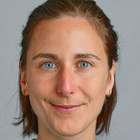The Current Column
How do we know when the sink is full?
Why it matters how we produce knowledge on marine CO2 observations
Hägele, Ramona / Mirja SchodererThe Current Column (2021)
Bonn: German Development Institute / Deutsches Institut für Entwicklungspolitik (DIE), The Current Columne of 28 June 2021
When the UN Decade on Ocean Science was launched on 1st June, German Chancellor Angela Merkel, UN Secretary General António Guterres and various other speakers not only highlighted the ocean’s capability of feeding millions, generating energy, and facilitating trade but repeatedly emphasized its capacity to capture and store carbon. Its function as a carbon sink puts the ocean front and centre in climate change research. Still, it only plays a marginal role in climate change policies and negotiations. Another sentiment shared by the high-level speakers was the notion that “we know more about the moon than we do about the ocean”. Therefore, increasing marine CO2 observations are a corner stone of the UN Decade’s agenda, as long-term observations of marine carbon build the foundation for research into the earth system’s carbon cycle.
The ocean has absorbed nearly 40% of fossil carbon emissions since pre-industrial times. However, as emissions rise, this capacity is increasingly challenged as ocean temperatures and acidification rates climb. These developments directly affect the ocean’s capacity to absorb and store carbon, but they also impact atmospheric conditions and threaten marine and coastal ecosystems. Discussions around carbon capture and storage are now starting to turn towards the ocean, seeking to not only reverse the aforementioned trend but to increase the ocean’s capacity to absorb atmospheric CO2 instead. This illustrates the close link between marine CO2 levels and the achievement of global climate goals. Marine CO2 measurements provide essential inputs for (inter-)national climate change scenarios such as those delineated in the reports of the Intergovernmental Panel on Climate Change (IPCC), for international climate change negotiations and policies around the globe. Measuring marine carbon loads therefore has an inherently political dimension.
Because of this political dimension, it is important that data on marine CO2 observations is openly shared, cognitively accessible by various kinds of users, and trustworthy. This implies translating it into understandable products, as well as being transparent about the uncertainties and the negotiations that take place in its production. While the international network of marine CO2 observations is already closely interlinked and scientists are well aware of the need to share data openly, administrative hurdles and limited capacities still impose barriers to open data sharing. In addition to increasing the amount and density of marine carbon observations, this is a major challenge that needs to be answered in order to produce not just “a predictable ocean” but also “an accessible ocean with open and equitable access to data” in accordance with the aims of the UN Ocean Science Decade.
As the UN’s Global Ocean Science Report shows, major disparities still exist in marine research infrastructure and technology, as well as staff and funding. The US, Japan, Australia, the EU, the Republic of Korea and Canada have the largest budgets for marine research and the highest number of research vessels. Since these regions possess the largest research infrastructure, they decide on where and what kind of data is collected as well as on topics worthy of scientific investigation.
These global inequalities are important to study as different world regions and countries rely on and interact with the ocean in different manners. For example, according to the Ocean Science Report, ocean-related research in Sub-Saharan Africa tends to specialize on relations to human health and wellbeing. At the global stage, however, this dimension hardly plays a role compared to topics such as marine technology or blue growth. Inequalities in relation to research funding and infrastructure therefore lead to imbalances in scientific agenda setting, and in the relevance of knowledge that is being produced.
Expanding biogeochemical measurements while also acknowledging the social and political dimensions of marine CO2 observations demands an inter- and transdisciplinary research process, which the German Development Institute / Deutsches Institut für Entwicklungspolitik (DIE) contributes to in one of its projects called C-SCOPE. Researchers investigate path dependencies and power constellations at the (inter-)national scale and the ways in which these shape who produces data, how this data is shared and how and to whom it is communicated. They also look at research as a social process, seeking to understand how external influences such as gender and cultural diversity shape the interactions among researchers and in doing so, can play a role in how data is analysed, interpreted and communicated. While this kind of research is still rare, the UN Ocean Decade represents a unique opportunity to build a comprehensive, openly shared, transparent and accessible information system on marine carbon observations that supports the achievement of the Paris Agreement while also promoting equity among different knowledge users and different knowledge providers.


